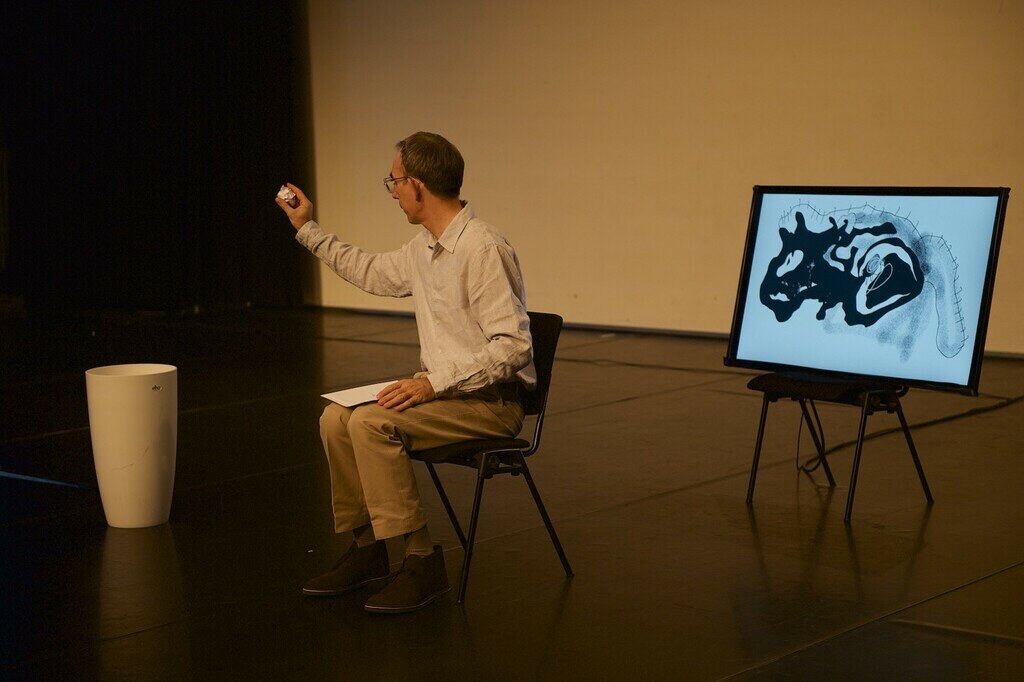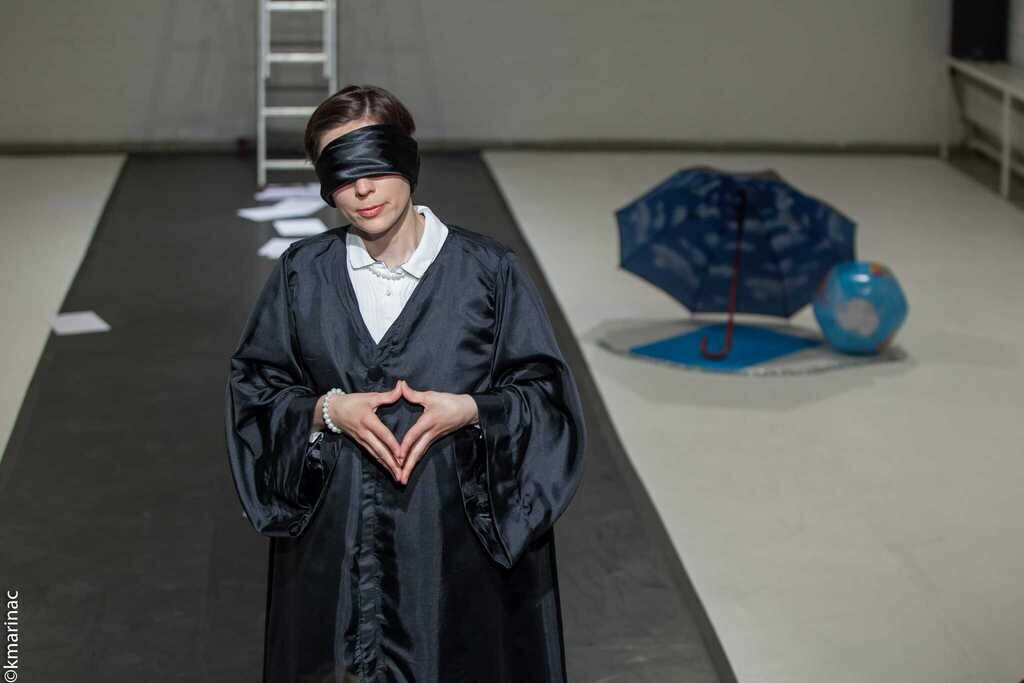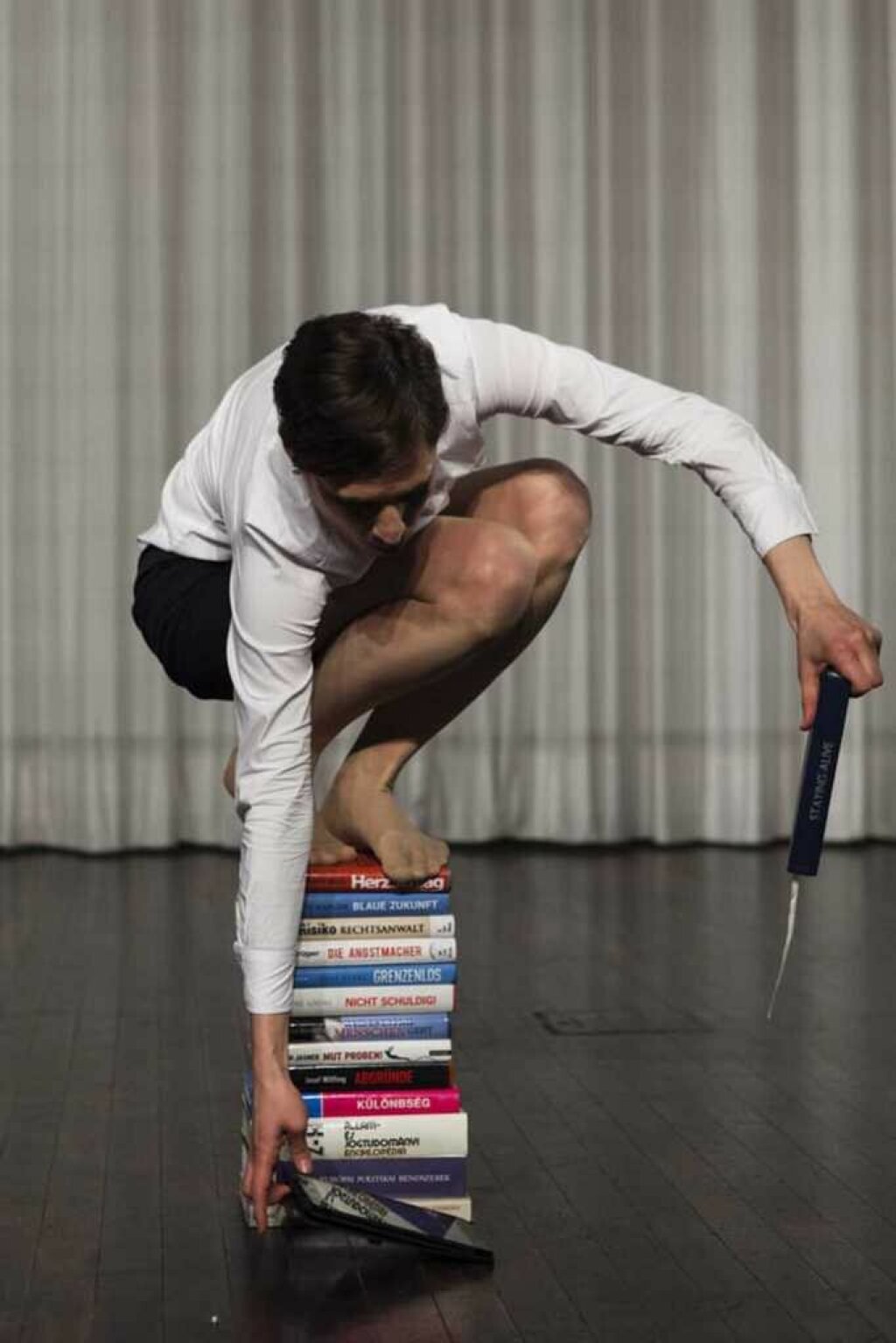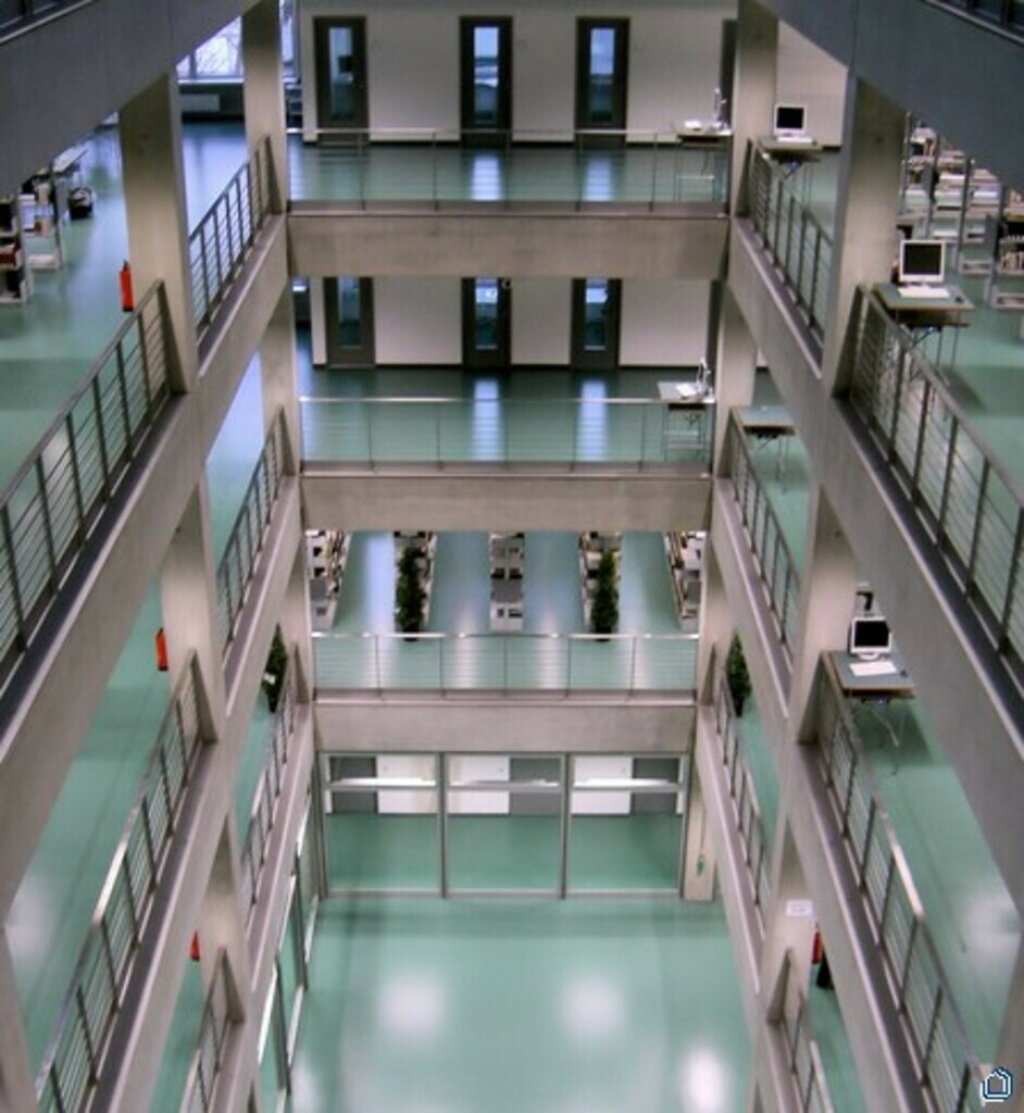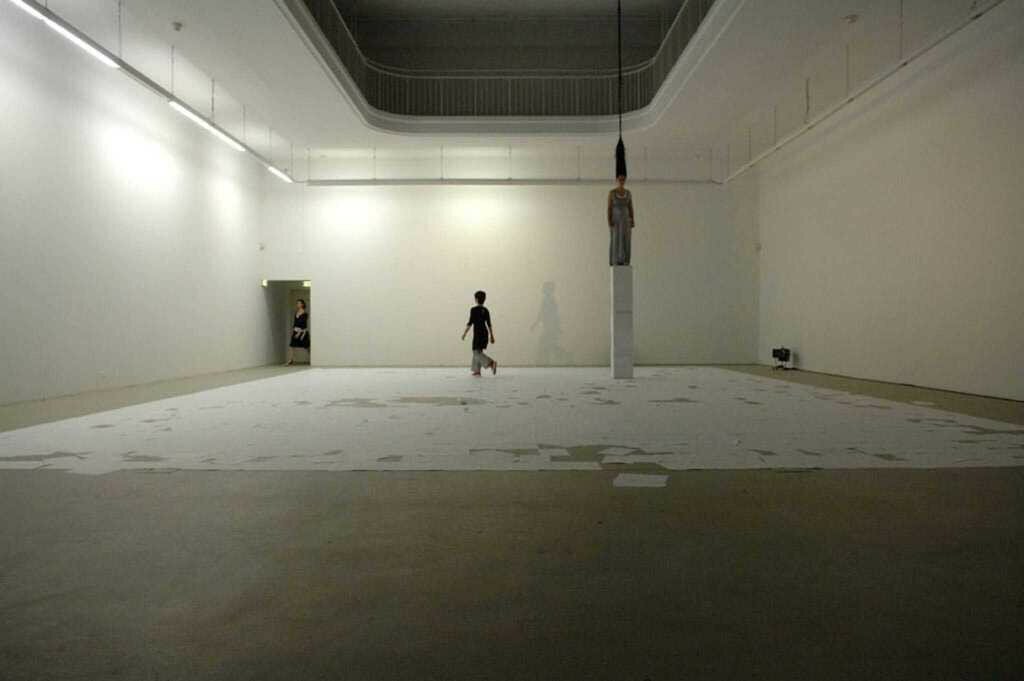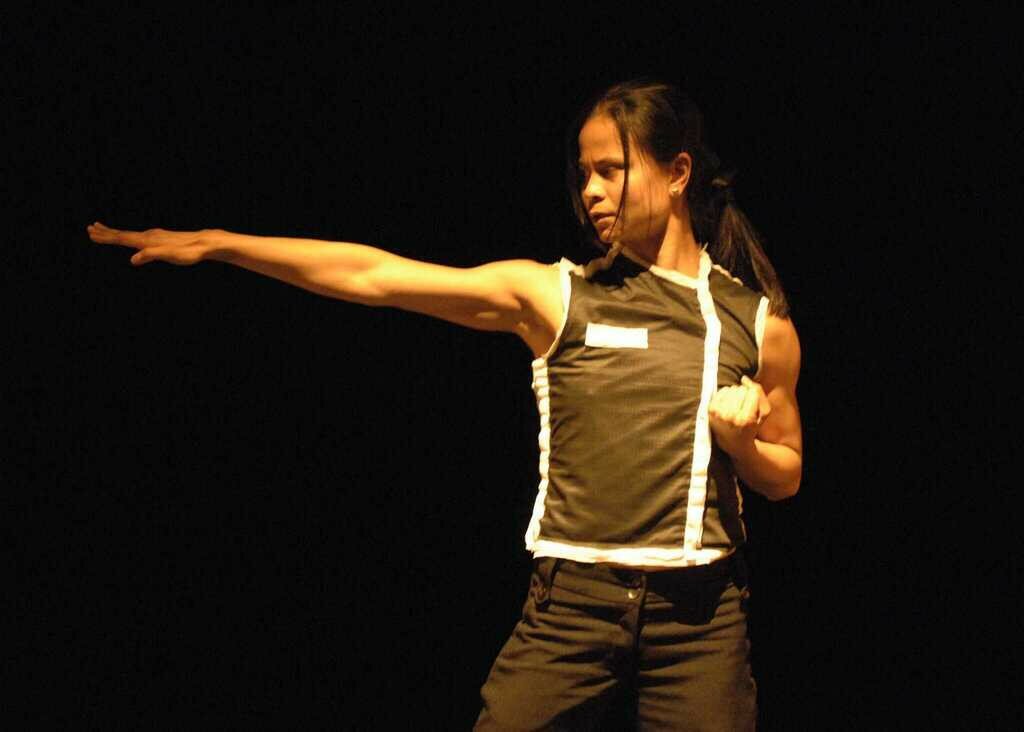Bureaucracy And Migration
At the beginning and during my career as a professional dancer, I had many problems getting my visa, even though I had already studied in Germany for five years and had not just one, but several work contracts. This was nothing unusual for ex-Yugoslavian citizens in the early 2000s due to the aftermath of the Yugoslavian war. However, due to the nomadic nature of my profession, I was subjected to particularly brutal treatment by the German immigration authorities. I created one of my first works, "Which Club?", for the Filipino performer Unita Gay Galiluyo, who had to endure even worse treatment by German authorities. We both received several awards for this work, which encouraged me to start with my choreographic career. This was followed by the works: Mittelwelle AFC, A4 and Catch 22, all dealing with bureaucracy in the context of human migration. When the recent migrant crisis broke out in 2014, I was invited by the curator Mirna Zagar to participate in the project Migrant body. This time I was commissioned to make a work on the subject of migration, which resulted in the solo “Staying alive”. A work that toured the world and is probably more relevant today than ever. In 2018, I received German citizenship together with my partner Clément Layes. Together we created the work “Ich bin Tscheud” (anagram of the word Deutsch-German), the most recent work on the subject of migration and bureaucracy. It is about the process in which we and our children, who were born in Germany and have lived in the country for years, officially became German citizens.
“The bureaucratic system simply doesn’t see a human being behind the paper. Making a change in a system that grinds everything it gets hold of is something to consider seriously. That is why it is important to me both as a person and as an artist not to empower the systems, but to take things into my own hands. To take responsibility, to gain integrity and power over my own life in the face of bureaucracy.”
Jasna Layes Vinovrski (excerpt from the publication “12 years Public in Private”
-
Ich bin Tscheud
Bureaucracy And Migration -
Lady Justice
Bureaucracy And Migration Character Building -
Staying Alive
Bureaucracy And Migration Character Building Shifting Contexts -
A4
Bureaucracy And Migration -
Temporary Exposition / Catch 22
Bureaucracy And Migration -
Which Club?
Bureaucracy And Migration
